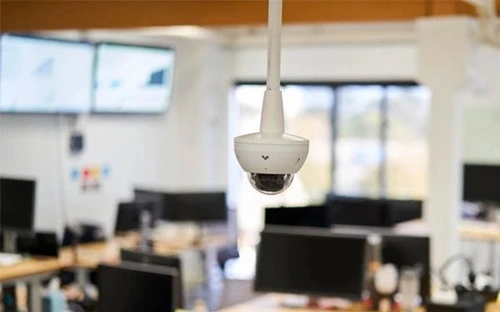No, it is not illegal to have cameras in classrooms in Texas. In fact, Texas law specifically mandates the use of cameras in certain types of classrooms, such as self-contained special education settings, to ensure safety and transparency. However, the use of cameras is regulated to protect the privacy of students and staff.
Legal Framework for Cameras in Texas Classrooms
Texas has taken a progressive approach to classroom surveillance, particularly in protecting vulnerable populations like special education students. The use of cameras in classrooms is governed by both state and federal laws, ensuring their application is lawful and appropriate.
1. Texas Education Code, Section 29.022
- Texas law requires public schools to install cameras in certain classrooms and settings under specific conditions. This includes:
- Special Education Classrooms: Cameras must be installed in self-contained classrooms or settings where a majority of students are in special education programs, provided a request is made by a parent, staff member, or school board member.
- Purpose: The primary goal of this requirement is to protect students with disabilities and document interactions for safety.
2. Notification and Consent
- Schools are required to notify parents and staff about the installation and use of cameras. The law emphasizes transparency and ensures that recordings are not used to monitor teacher performance or general classroom activities unless related to an investigation of abuse or neglect.
3. FERPA Compliance
- The Family Educational Rights and Privacy Act (FERPA) governs the use of classroom recordings if they include identifiable students. These recordings are considered educational records and must be handled with strict privacy protections.
Purpose and Benefits of Classroom Cameras in Texas
1. Protecting Vulnerable Students
Cameras in special education classrooms help ensure the safety of students with disabilities, who may be less able to report abuse or neglect.
2. Documenting Incidents
Video recordings can provide critical evidence in resolving disputes or investigating allegations of abuse or misconduct.
3. Transparency and Accountability
The presence of cameras enhances trust among parents, teachers, and administrators by promoting accountability in classroom interactions.
Challenges and Concerns
1. Privacy Issues
Critics argue that cameras, even in special education classrooms, may infringe on the privacy of students and teachers. Balancing transparency with privacy remains a key concern.
2. Cost of Implementation
Installing and maintaining camera systems can be costly, especially for school districts with limited budgets.
3. Limited Scope
While cameras are required in certain settings, they are not mandated in general education classrooms. This selective application may lead to uneven protections across student populations.
4. Access and Misuse of Recordings
Access to recordings is strictly controlled, but unauthorized viewing or misuse of video footage could result in legal and ethical issues.
Key Considerations for Texas Schools
1. Notification and Consent
Schools must ensure that parents and staff are fully informed about the presence of cameras and the purpose of their use.
2. Proper Storage and Access
Recordings must be securely stored and accessed only by authorized personnel, typically during investigations.
3. Compliance with Federal and State Laws
Schools must adhere to FERPA and Texas Education Code requirements to avoid potential legal liabilities.
Related FAQs
Q. Are cameras allowed in all Texas classrooms?
Ans: No, cameras are not universally required or allowed in all classrooms. They are mandated primarily in self-contained special education settings upon request.
Q. Can schools use classroom cameras to monitor teacher performance?
Ans: No, Texas law prohibits the use of classroom cameras for evaluating teacher performance unless related to an investigation of abuse or neglect.
Q. Do parents need to request cameras in classrooms?
Ans: Yes, for self-contained special education classrooms, a parent, staff member, or school board member must request the installation of cameras.
Q. Can cameras in Texas classrooms record audio?
Ans: Yes, cameras in special education settings are typically equipped with audio recording capabilities, but these recordings are subject to the same privacy and access restrictions as video.
Q. Who can access classroom camera recordings?
Ans: Recordings can only be accessed by authorized individuals, such as school administrators or law enforcement, and typically only during investigations.
Q. Are there penalties for misuse of classroom recordings in Texas?
Ans: Yes, unauthorized access or misuse of recordings may result in disciplinary action, legal consequences, or both.
Conclusion
The use of cameras in Texas classrooms, particularly in special education settings, reflects the state’s commitment to protecting students and fostering transparency. While not illegal, the use of cameras is tightly regulated to balance safety, privacy, and accountability. Parents, teachers, and administrators must work together to ensure compliance with these laws and protect the rights of all involved.


